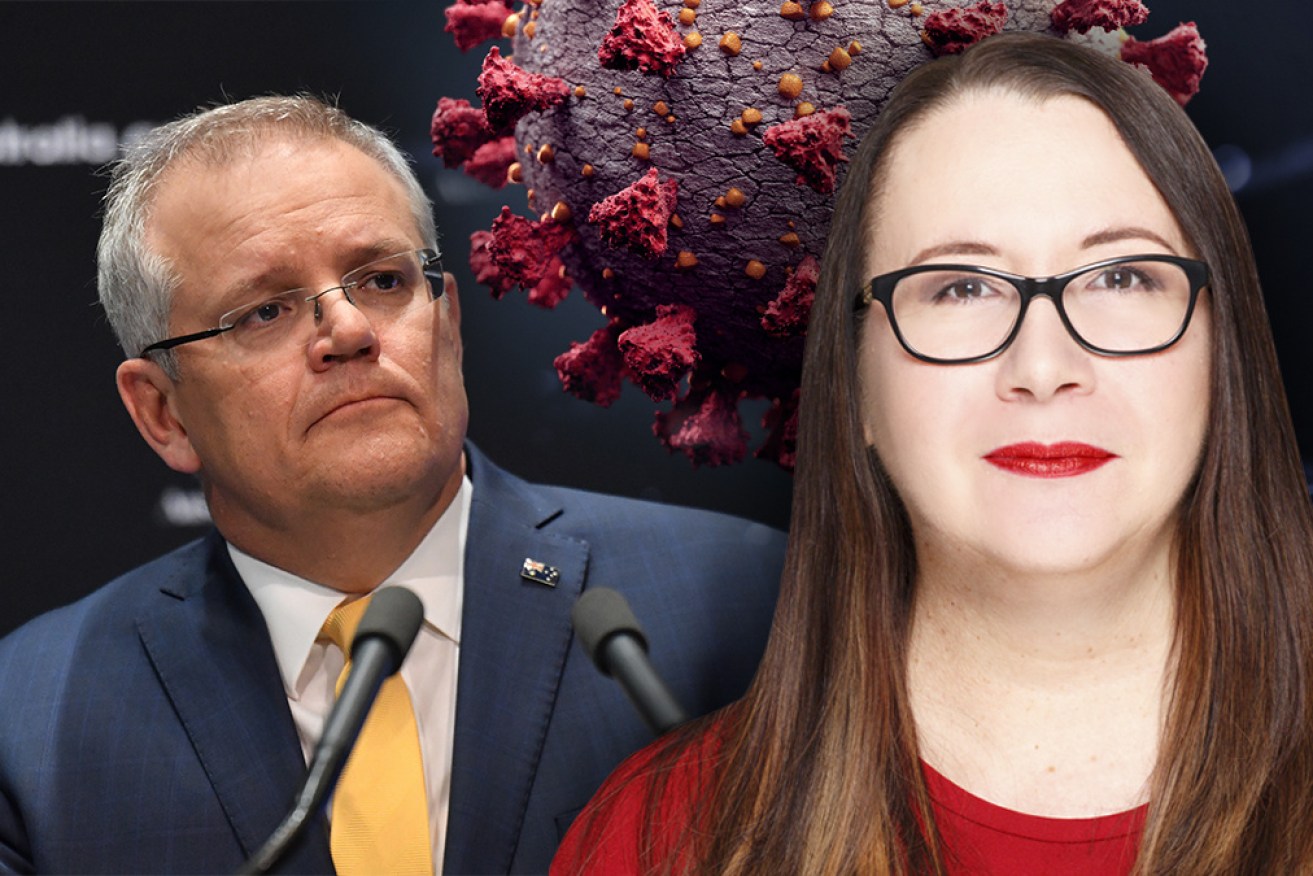Scott Morrison has been given a second-chance bonus. How will he use it?


Paula Matthewson asks, will Scott Morrison get out of this crisis unscathed, or will it be a repeat of his bushfire performance? Photo: TND
In the short four months that we’ve seen of 2020 so far, there have been two graphic examples of how voter trust can either be shattered or strengthened by a national crisis.
Firstly Prime Minster Scott Morrison seemingly dealt his leadership a fatal blow in the first few days of this year, misjudging the extent and impact of the national bushfire crisis – resulting in an ill-advised overseas holiday – and failing to provide the leadership Australians expected while the nation literally burned.
Voters’ response was swift and savage, with opinion polls recording historic drops in the PM’s approval ratings. Some commentators even suggested the nation’s number one bloke would find it impossible to regain voters’ faith before the next federal election, still two years away.
But it’s amazing how a global health crisis can change everything, including voter trust. According to Guardian Australia’s latest Essential Poll, voters are not only feeling more favourable about the PM but several other things that they traditionally mistrust.
Essential has tracked voter trust in a number of institutions and some professions over the past several years. The poll published this week found large increases in voter trust over the past year in parliaments at the national (up 18 percentage points), state (up 15 points) and local level (up 10 points), in business groups (up 9 points) and unions (up 11 points), and even in political parties (up 11 points).
Admittedly, trust levels in most of these institutions were pretty low to start with. But the increases suggest voters are responding positively to the (mostly) collegiate and cooperative way that governments, business and unions are working together to steer the nation through the current health crisis and economic challenges that follow.
Where was @ScottMorrisonMP crocodile tears when the country was burning and he was drinking cocktails in Hawaii?
— Rick (@colonelhogans) April 23, 2020
Having observed, and hopefully learned, that voter goodwill is a brittle and fragile thing, the Prime Minister now faces his biggest leadership challenge yet in deciding what to do with this second-chance bonus.
It will be an unenviable task, weighing up the potentially conflicting advice of the political purists wanting to resume their culture wars, the economic ideologues wanting to slash spending, and the pragmatists explaining how voters will react to the reversal of some COVID-19 measures.
A perfect example of this conundrum is the additional $550 a fortnight being paid to the recipients of unemployment benefit. If kickstarting the economy through consumer spending is a high priority, it would be logical to make this increase permanent.
#scomo welfare pensions. All going backwards. $5 rise a fortnight is bin money. Newstart is abuse. Then expected to work for dole. Travel on it etc. I could not afford a paper a day. Shock horror cut to jobseeker. Jobkeeper. They had work. No one is gets their job back as it was
— Lol (@SoStufft) April 23, 2020
But doing so would run counter to the government’s philosophical preference to keep dole payments as low as possible, to avoid creating a ‘perverse’ incentive for people to stay unemployed.
The PM would be wise to continue working with the National Cabinet on these complex questions, to draw on the best advice that governments across the nation can muster and avoid the temptation of falling back into old political habits.
It is fair to assume that most political leaders hope their achievements will endure long after they’re gone.
If Scott Morrison entertains that aspiration, and if he chooses to be a leader rather than a politician in the months to come, he will be remembered well for being Australia’s PM during one of the world’s most historic moments.








